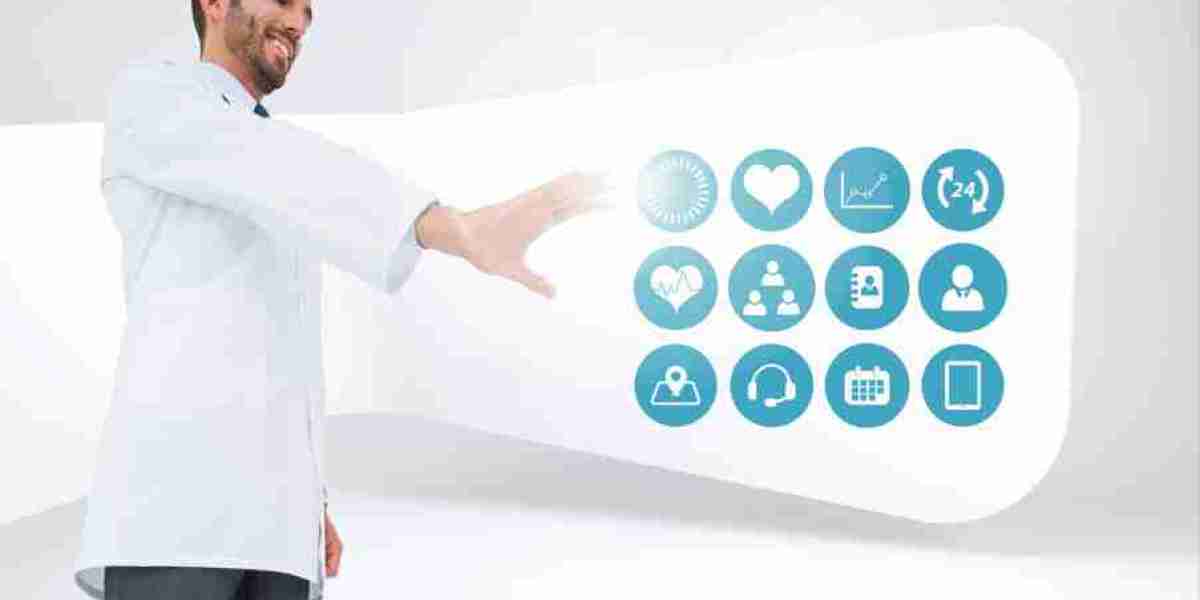The healthcare landscape is undergoing a dramatic transformation fueled by advancements in infotech (information technology). From streamlining administrative tasks to enabling groundbreaking medical interventions, healthcare technology trends are shaping a future where patient care is more efficient, personalized, and effective. This blog post delves into the key components of this revolution, exploring how technology is reshaping the way we approach health.
1. Electronic Health Records (EHRs): The Cornerstone of Connected Care
EHRs have become the cornerstone of modern healthcare. These digital records compile a patient's medical history, including diagnoses, medications, allergies, and treatment plans. This centralized system offers numerous advantages:
Improved care coordination: EHRs allow healthcare providers across different facilities to access a patient's complete medical picture, facilitating a more coordinated approach to treatment.
Enhanced accuracy and efficiency: EHRs reduce the risk of errors associated with paper charts and streamline administrative tasks, freeing up valuable time for clinicians.
Empowered patients: With patient portals linked to EHRs, individuals can access their medical records, track their health data, and participate more actively in their own care.
2. Telehealth: Bridging the Gap in Accessibility
Telehealth, the use of telecommunications technology for remote healthcare delivery, has emerged as a game-changer. It allows patients to connect with healthcare providers virtually, eliminating geographical barriers and increasing access to care, especially in underserved communities. Here's how telehealth is impacting healthcare:
Improved patient convenience: Telehealth consultations offer flexibility, reducing commute times and wait times in clinics.
Enhanced chronic disease management: Telehealth platforms enable remote monitoring of chronic conditions, allowing healthcare providers to stay connected with patients and adjust treatment plans as needed.
Mental health support: Telehealth offers a convenient and often more comfortable setting for individuals seeking mental health services, expanding access to critical care.
3. Artificial Intelligence (AI) and Machine Learning (ML): Powering Medical Insights
AI and ML are rapidly transforming healthcare by enabling the analysis of vast amounts of medical data. These powerful tools are unlocking new possibilities:
Improved diagnostics: AI algorithms can analyze medical images and patient data with high accuracy, aiding in earlier and more accurate diagnoses.
Personalized medicine: AI can identify patterns in patient data to predict health risks and personalize treatment plans based on individual needs.
Drug discovery and development: AI can analyze vast databases of molecular structures to accelerate the discovery and development of new drugs.
4. The Internet of Things (IoT) in Healthcare: Connecting Devices for Real-Time Monitoring
The IoT, a network of interconnected devices collecting and sharing data, is making inroads into healthcare. These smart devices offer real-time insights into a patient's health:
Remote patient monitoring: Wearable devices and sensors can continuously track vital signs, such as heart rate, blood pressure, and blood sugar levels, allowing healthcare providers to monitor patients remotely.
Improved medication adherence: Smart pill bottles can remind patients to take their medication and track adherence, potentially improving treatment outcomes.
Post-surgical care management: IoT devices can monitor a patient's recovery at home, enabling early detection of potential complications.
5. Big Data and Analytics: Transforming Healthcare Decision-Making
The healthcare industry generates massive amounts of data daily. Big data analytics tools are crucial for extracting valuable insights from this data, leading to improved decision-making across various aspects of healthcare:
Population health management: Analyzing large datasets helps public health officials identify trends in disease outbreaks and target preventative measures more effectively.
Clinical research: Big data analytics can accelerate clinical research by identifying potential drug targets and streamlining patient recruitment for trials.
Hospital resource management: By analyzing data on patient admissions and resource utilization, hospitals can optimize staffing and resource allocation.
The Future of Healthcare Technology: A Tech-Driven Journey
The future of healthcare is undoubtedly tech-driven. As these key components of healthcare technology continue to evolve and converge, we can expect even more transformative changes. Tech publications anticipate advancements in areas like virtual reality for surgical training, robotics for minimally invasive procedures, and 3D printing for personalized prosthetics. The ultimate goal of these innovations is to create a healthcare system that is more accessible, efficient, and patient-centered, leading to better health outcomes for all.



